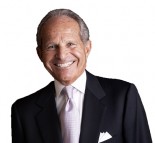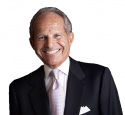
Females age 16-25 spend about five hours a week taking selfies. There are 93 million selfies taken worldwide each day. The average millennial will take an average of 25,700 selfies over a lifetime.
Anywhere you go, you see someone taking a selfie.
These images can be distorted due to angles and lighting. Imperfections and asymmetries are magnified by selfies. But, logic stands that if you're taking a selfie, of course you want to look as good as possible.
Additionally, first impressions were once made in person. Now, you may be making a first impression via social media. You want to make that first impression a positive one.
Whether good or bad, we live in a different world. People are comparing their facial features to celebrities. Magazine covers are retouched, models are professionally lit, and certain cover models have had cosmetic procedures done. Some young people bring their selfies into a surgeon's office as proof they need plastic surgery.
Common trouble areas referenced in selfies are the neck, lips, nose, chin, and skin imperfections. An ethical plastic surgeon will consult each patient and advise against unnecessary procedures. Just because the selfies don’t look perfect doesn’t mean the face is out of balance under normal angles and lighting.
What’s the motivation behind the urge to get cosmetic surgery? These procedures can give you self-confidence, but it’s not necessarily going to snag a new mate or secure a new job. Be realistic about your expectations.
If you’re looking for natural results, you want to fill areas that are depressed and decrease areas that are excessive. Using your own fat as filler can help bring balance to your face and body. Unlike other fillers, your own fat isn’t synthetic and won’t cause allergic reactions. In fact, 30-50 percent of fat injections last permanently. Areas that are static tend to last longer than mobile areas. Your skin looks smoother and more natural.
Older folks spend more time with online chatting than taking selfies. FaceTime and Skype chats with family and friends has lead to a desire for cosmetic improvements. Job seekers may want to make some adjustments so they appear younger and improve their chances in the marketplace. Online chatting and videos can distortion images.
The mature set usually wants to turn back the clock a bit or have the outside match the inside. This crowd has realistic expectations for improvement. They want to look naturally "fresher." Plastic surgery is one more option to spiff up one’s appearance.
If you're looking to freshen your appearance, what should you know before you go under the knife or needle?
Be sure to see a board-certified plastic surgeon. No national board uses “cosmetic” in the title. Look for someone who has experience in the field. You need to see the surgeon to discuss treatment before booking the procedure. You don’t want to be stuck with a one-size-fits-all treatment, simply because the clinic just bought some new equipment.
You also want to be sure the facility is accredited for surgery by a national organization. Only 27 states require any credentialing of surgical facilities in an office space.
Listen in as Dr. Robert Singer discusses what you’re really seeing in your selfies and/or chats, as well as how to discuss potential changes with a licensed surgeon.
